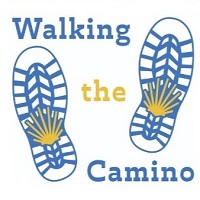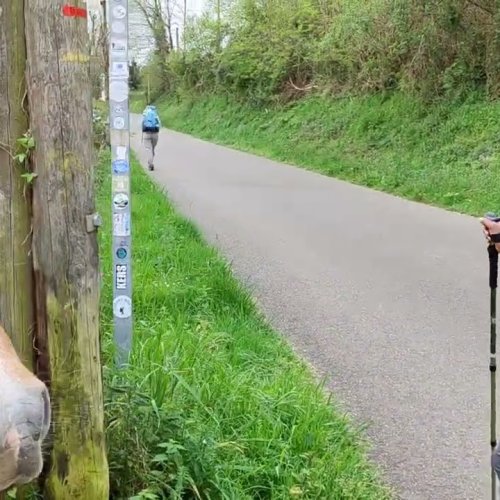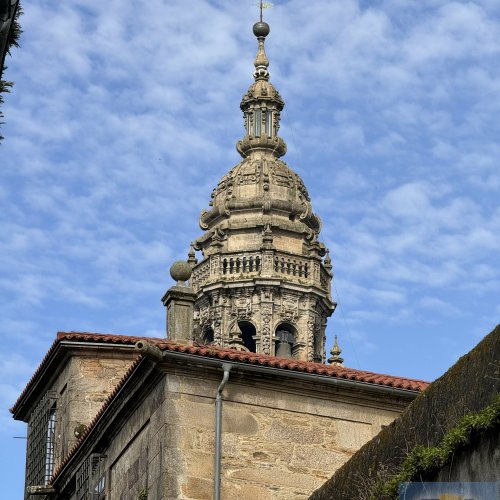Booking from the trail is pretty easy if you have a Spanish phone or a Spanish SIM card in your home-country phone. Keep in mind that the person on the other end of the phone already knows what you want, and they will likely know a few words of 'hospitality English.' If you aren't confident to make the call yourself, you can always ask the host where you're staying to call for the next night. Or your new Spanish pilgrim friends will gladly make the call for you. If you use another person's phone, it's courteous to offer to pay for the call, say one euro.
To increase your success rate, write down what you want - how many people, bed or a room, what day your are arriving, and what time you expect to arrive by - and give that to the person making the call for you. I always give a late arrival time, say 6:00pm, and say that I will call if I will arrive after that time. If you do that, you don't have to call again to confirm.
Many hotels and other private accommodations can be booked on booking.com, using a smartphone and WiFi. Easy. (Although the rates are higher than if you called to book.) If you call to make a booking at a hotel, you will probably need to give a credit card number. Usually hostales (small hotels), pensiones (guesthouses), or Casa Rurales (like a B&B) do not ask for a credit card. For payment, hotels and some hostales take credit card, but cash is the way of life at smaller places and albergues.
Most important: If you change your plans and will not keep a reservation, be sure to call to cancel so they can sell the bed or room to someone else.
You may want to check out the app 'Wise Pilgrim.' It lists most of the albergues and some of the private accommodations, and even gives the email addresses and phone numbers for easy reference when booking. For the private accommodations, it will show ones that can be booked through booking.com.
Personally, I like to book places in advance. That way I don't have to rush out in the morning and can enjoy a leisurely coffee before walking. I then can also take the day slowly without worrying if I will have a bed or a room.
Good luck!

















